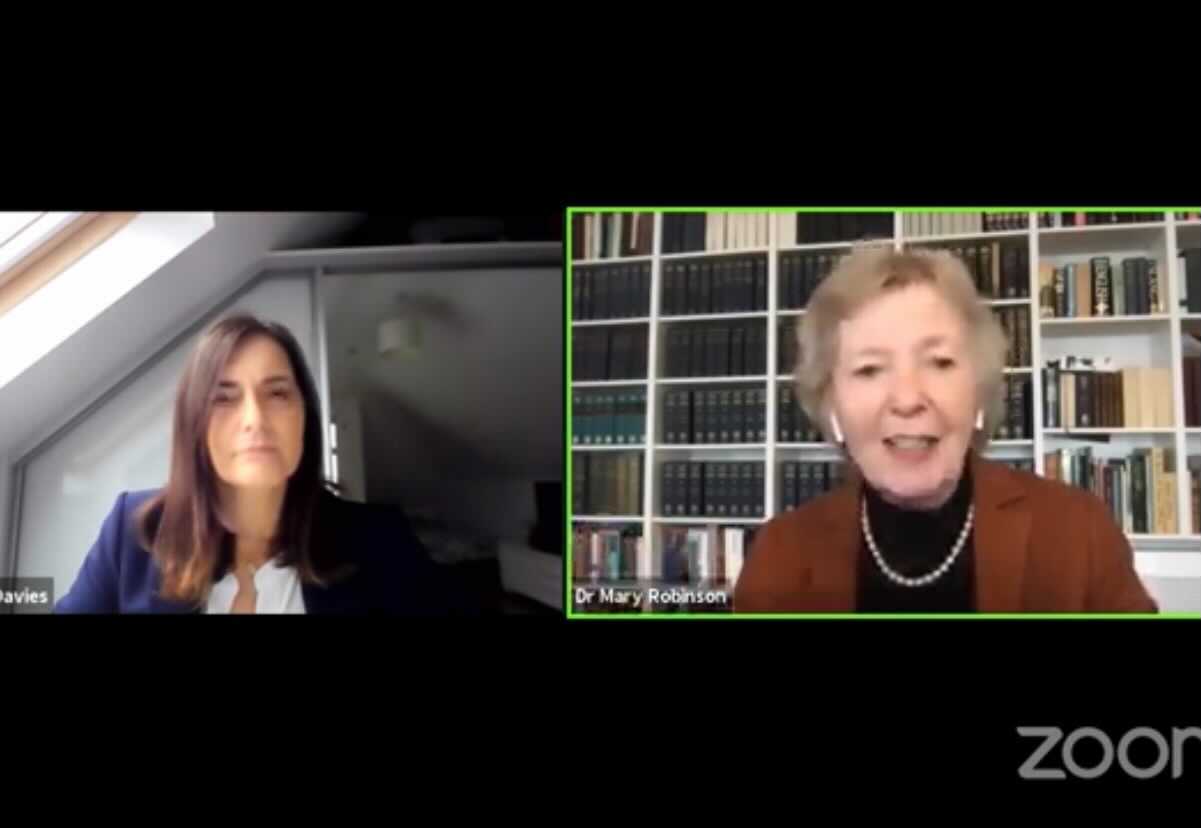
Cities currently generate a staggering 70 per cent of global emissions – representing a major challenge for governments – and in response former President of Ireland Mary Robinson yesterday told a webinar that we have to build sustainable, “people-centred” cities.
Robinson said that this decade we “need to bend a curve… that is not bending enough”, and that “cities are at the heart of this”.
The webinar – organised by Trinity Development and Alumni and chaired by Prof Anna Davies, the director of the Environmental Governance Research Group who has advised the government on climate change – revolved around the discussion of cities and their effects on climate change.
The conversation focused heavily on the idea of a “just transition”, in which poorer communities are not damaged by the move to sustainable cities.
One example of poorer areas bearing the brunt of climate change that Robinson touched on is the recent damage done by cyclone Eloise to Mozambique, where an estimated 18,000 people have been displaced – a region already devastated by climate change-related weather phenomena.
Focusing solely on adapting to climate change, Robinson said, makes little sense if cities are being destroyed. The world will have to contemplate “loss and damage”, she said.
Instead she focused on a more equitable vision of transforming cities in the wake of climate change. It was not, she said, about “gentrification of areas that drive out communities” who can’t afford to live there.
Instead, governments need to “listen more to communities” and “think about how to make our cities more equitable and more inclusive, to really put a focus on social housing and the way in which communities feel”.
“Just as products that people say are good for us…”, she said, “should never cost more than the average price of food”.
On nuclear energy, Robinson was sceptical, saying that “it has a very high cost and it has quite a lot of risk”, in particular the threat of more countries developing nuclear weapons.
Instead, she said governments should focus on solar, hydro and wind power, as they have become significantly cheaper in recent years.
Robinson appeared optimistic about the prospects of humanity throughout the discussion, although she described herself as a “prisoner of hope” rather than an optimist. She added that she feels “great hope for the world because of young people”.
She told the audience to “get angry… use your vote, use your voice, join organisations”.
“Imagine the future we should be hurrying towards.”
The next addition in the Future Cities series will take place on March 31st at 5pm and will focus on New York City. Prof Siobhan Clarke, the director of Future Cities, as well as two Trinity alumni Edwina Fitzmaurice and Diana Chiavetta.






